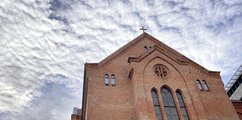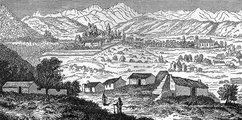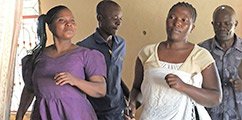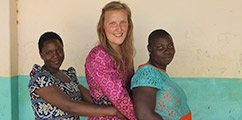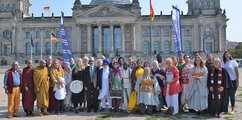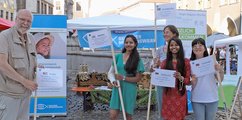
Our sponsoring churches
Our sponsoring churches are:
the Evangelical Church Berlin-Brandenburg-schlesische Oberlausitz,
the Evangelical Church of Anhalt.
The Evangelical Church of Anhalt
Approximately 50,400 church members attend about 150 autonomous local congregations in Anhalt. Currently, 54 pastors as well as 39 full-time employees – catechists and church musicians – work in the region.
The synod is composed of 33 members directly elected by the elders in the respective church districts and six members appointed by the Church Board. This board consists of the Anhalt's Church Council – whose members are the church president and the three church officials –, the governing committee of the synod, and two other synod members. Head of the Board is the Church President.
Historical background: Prince Wolfgang of Anhalt-Koethen signed the protestation of Speyer in 1529 and the Confessio Augustana in 1530. As of 1534, the congregations in Anhalt-Dessau under Prince Georg III (the Blessed One) also received the communion under both species. An independent regional church was founded in 1578.
During the Reformation the area of Anhalt adhered predominantly to the Lutheran creed. In 1606, the entire princedom of Anhalt converted to the Reformed denomination. The princedom of Anhalt-Zerbst, however, returned to the Lutheran confession in 1644. As a result, both denominations co-existed over centuries in the region of Anhalt. Church district heads Krummacher of Bernburg and de Marées of Dessau initiated the movement for a unified church in Anhalt in the early 19th century.
Both denominations continued to grow closer in the course of the 19th century. The process was given momentum by the establishment of a unified consistory in 1865, a common church policy in 1875, and a synod policy in 1878. The first constitution of a unified Evangelical Church of Anhalt in 1920 doesn't name any specific confessional writing; the new unified church aspired to bridge denominational differences.
In 1960, the Evangelical Church of Anhalt became part of the Evangelical Church of the Alliance (acronym in German: EKU, since 2003 the Alliance of Evangelical Churches, UEK). The Evangelical Church of Anhalt forms part of the Evangelical Church in Germany (EKD).
The Evangelical Church Berlin-Brandenburg-schlesische Oberlausitz
The Evangelical Church Berlin-Brandenburg-schlesische Oberlausitz (EKBO) is unlike any other church in Germany in that it represents both former East and West German regions, as well as urban and rural areas. It is the only church that was shaped through the unification of previous Eastern and Western entities. At its centre is Berlin, Germany's largest city.
Bishop Christian Stäblein , PhD, is head of the church. The dictrict includes 1,500 local congregations which 1.2 million Christians call their spiritual homes. 22 percent of Berlin's population, 19 percent of the people in Brandenburg, and 20 percent of the population in the area of Silesian Upper Lusatia are part of the Evangelical church.
The church's buildings can hardly be overlooked, located as they are in the centre of villages, towns and cities. The very old cathedrals and churches in Berlin, Brandenburg, Fürstenwalde, Frankfurt, Cottbus and Goerlitz look back on a long tradition. They illustrate a religious faith that spans many generations.
The church wants to accompany and assist people finding themselves at major crossroads in their lives, be they baptism, confirmation, marriage or funeral. In baptism God's promise to carry us through our lives is passed on.
EKBO offers its services to all people, especially through its work in the educational area. Our input ranges from religious education at schools to the numerous concerts and exhibitions organized by the Art and Culture Foundation. The church itself also operates several schools.
In the spirit of a helping church, we make a variety of social services available to everyone. Actively counselling and coming alongside people in different life circumstances is as important to us as spreading the Good News of Jesus Christ through word and deed.
